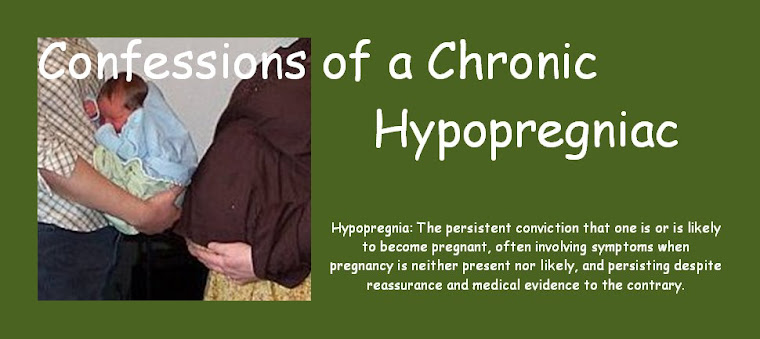When I initially wrote this (I can’t remember why, maybe it was as an act of catharsis) I was still really contorted with negative emotions about the experience and trying really hard not to be bitter and angry at some of the people involved. I knew I needed to get my experiences down, but I didn’t even use complete sentences. As I went back through and fleshed-out the story, I also tried to temper un-due frustration and indignation. I apologize if I didn’t neutralize all of it. Although I do believe that there were many points at which things could have been done differently to lead to a better outcome overall, I am now at peace with how things happened (thanks in no small part to the beautiful birth of my second child—story to follow).
Saturday, 3 days before due date
My mother’s and sisters’ babies had mostly gone significantly over their due dates, so I was mentally psyched up for a 42 or 43 week pregnancy (or even more!) That’s why I was so surprised and a secretly excited when I discovered that I was having contractions all day, and wasn’t even at my due date yet. I think I was having them the day before, also, but they weren’t very strong or totally regular. They felt exactly like the Braxton-Hicks contractions I had had periodically throughout my pregnancy, but were coming very frequently, no matter what activity I was doing (or not doing). I had spent most of the day with most of my family at my sister’s house. I can’t even remember why, except that her little boy was going to be blessed the next day at church, so maybe it was a party for that. By the end of the evening, my contractions still didn’t feel very strong to me, but they were regularly about 5 minutes apart. We called the doctor on the way home and got his answering service. The answering service called the doctor on-call at the hospital, which surprised me a little bit because one thing my obstetrician is known for is delivering his own babies. I didn’t know at that time that doesn’t mean that he will necessarily be the one attending throughout the labor (or pre-labor, as the case may be). The on-call doctor told us to come in.
The contractions stopped before we got to the hospital. They asked me to lay on the bed anyway so they could take a 10 minute tracing of the baby’s heart rate, which I did and they attached the contraction and fetal heart rate monitors. They kept losing the baby’s heart rate every time they let go of the monitor after re-adjusting it (which they did a million times), until finally one of the nurses came and held it for the full 10 minutes. Because of one small blip in the read out of the heart rate where it looked like the baby’s heart rate dropped severely for one second (quite honestly, the tracing was almost entirely composed of blips from all of the times the heart rate faded out entirely, probably due to the baby moving), the on-call doctor ordered me on bed rest for the weekend and to come back on Monday for a fetal non-stress test (basically another 10 minute tracing of the baby’s heart rate). The Monday non-stress test I was OK with me because I had to be in the area for a regular prenatal appointment anyway. However, I was very upset about the bed rest order. First of all, no one could explain why. Why was this blip significant, when all of the others meant nothing? What were they afraid would happen if I was moving instead of laying down—I would go into labor? That’s exactly what we wanted, isn’t it? I was especially frustrated about the situation because, as I said above, my new baby nephew was being blessed the next day at church and almost all of my family was in town for it. I would have to miss both his blessing and the family get-together afterward. However, I never saw the doctor who ordered the bed rest. Presumably she saw the read out from my monitors down the hall at the nurse’s station. All the nurses could say was, “That’s just what the doctor wants. She does tend to be a little more conservative than others.” This was extremely frustrating. There was a reason that I chose my doctor, and not another. But this was just the beginning of my discovery about the realities of hospital births and how many factors combine to make decisions for you, regardless of your preferences. I wasn’t ready to give in, though, and I requested that the nurses call my own doctor for his opinion. He concurred with the on-call doctor, but agreed to allow me to go to church for Sacrament meeting at my own ward. In retrospect, I really wish I had followed my own intuition and ignored the order entirely. It could not have resulted in any worse outcome.
I was also glibly told by the nurses that the contractions I had were not actually labor (then what were they, is what I want to know), and when I am having real labor contractions, I will know.
Digression #1: I hate the term “false labor.” It is a lie. Any regular contractions you have toward the end of your pregnancy are labor contractions! They may be very early labor—labor can last more than a week—but they are real, and they do real work of progressing you toward birthing your baby. I was 3 cm. dilated at my last prenatal checkup before Willow was born due entirely to so-called “false” contractions. There is nothing “false” about early labor contractions.
How To Get Rid of Plantar Warts on Children
8 years ago



No comments:
Post a Comment